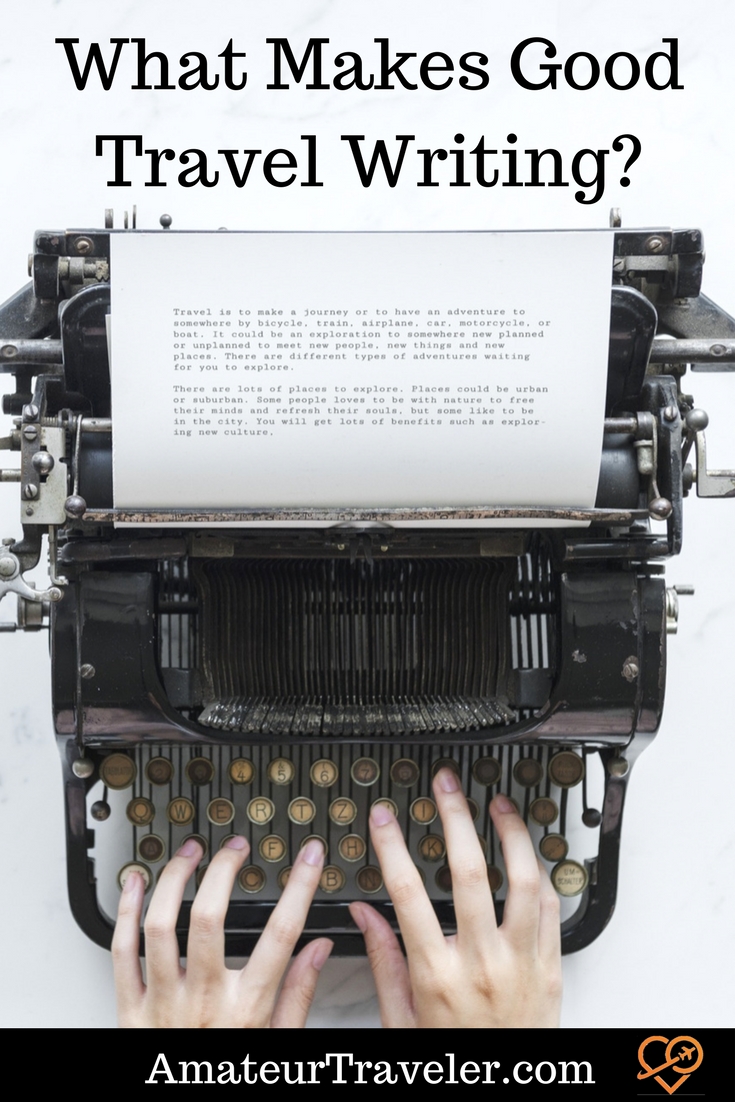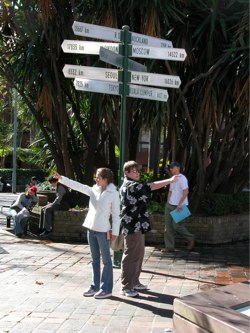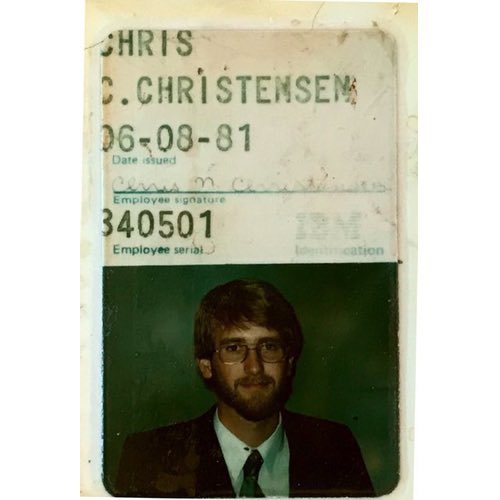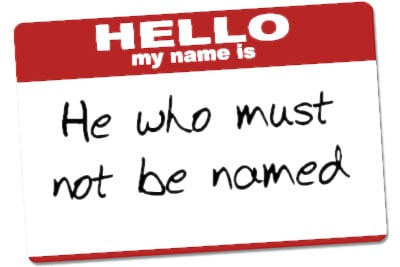What Makes Good Travel Writing?
categories: UncategorizedThe Lede
“Don’t worry said the turbaned man, that snake around your daughter’s neck is not venomous.”
That was the example sentence my instructor used to teach us the value of a lede, the opening sentence of a good article. My instructor was Spud Hilton the travel editor for the San Francisco Chronicle. The venue was the Book Passage Travel Writing Conference in Corte Madera, California.
Book Passage
Although I recall that lead sentence clearly, I attended the conference eight years ago. In 2010, I quit my job as a VP of Engineering and Operations at a Silicon Valley startup to be a travel blogger and podcaster. To be honest, I quit my job because I needed to quit my job and spending more time on my blog was something that I did for a while as I burned through my savings.
I attended the Book Passage Writing Conference run by the inimitable Don George to improve the writing on my blog. I think my writing has improved but I didn’t anticipate how much that course would affect my role as an editor. If you have sent in a guest post for Amateur Traveler and I have rejected it, I was probably channeling my inner Spud.
Have a point
One of the stories that Spud told that sticks with me was of fellow reporters stopping by his office and saying “I am going to this or that place, do you want me to bring back a story”. Spud’s line was “you don’t have a story, you have a ticket”.
I’m a big fan of travel journaling or you write down everything that occurs to you on a given day at a given destination, but travel writing is something different. It is not necessarily chronological. And every good article serves to support some particular point the author is trying to make. That point can be as simple as “Riga has a Jazz scene”, “there are ways to save money on airplane travel”, or “the street art scene in Toronto is fascinating”.
Get to the point
I see a lot of articles submitted to me that seem to think they need extra fluff at the beginning that goes something like this:
“Travel is wonderful. We all should travel. Travel is good for your soul.”
Of course, the authors usually use many more flowery adjective-weighted paragraphs to get across the same point. Lose the fluff. Get to the point.
Who Is It All About?
When we do a good job here on Amateur Traveler of telling travel stories, we improve your travel experience. A good story, a good article is about your trip and not mine.
A recent article that was submitted said that the writer spent a lot of time on online discussion boards looking for bargains for their trip. So? Either teach me how to do that or leave it out. One thing I tell people who are pitching an article or an episode for Amateur Traveler is that I’m more interested not in a singularly exceptional experience but an experience that the reader or the listener could also have.
We tell stories to entertain but also to inform. My heart was warmed last week when Joe ?(@A380i) tweeted from Vieques he felt like they had already been here because of the information that he learned on the podcast. Good travel writing (or podcasting) transports people.
Don’t (Necessarily) Start at the Beginning
Spud, who gets hundreds of more submissions and on any given day than I do, has developed even more pet peeves over the years. One pet peeve is the quintessential story of a trip to Africa that starts with “our plane landed in Africa”.
If the most interesting portion of your trip is the landing of the plane, the queuing at customs, and the retrieval of your bags, then, by all means, start your story that way. Although it could be said, that if this is the most interesting portion of your trip, you might be better off staying home.
If you ever watched the TV show “Lost”, you may remember the pilot started with the main character Jack opening his eyes and finding himself lying in the jungle. He then walks onto the beach to see the wreckage from a plane crash. It was the best opening minute of a TV show ever. It did not start with checking in at the airport are going through security. It started at an interesting point in the story and then told stories going both backward and forward from that point. It revealed facts to us in a deliberate fashion in order to move the story forward. Your travel story should do the same.
When you tell about your trip to New Zealand to your friends do you start with the wonder of black water rafting in a cave, or do you start with “I drove to the airport”. If you start with the latter… and your friends let you continue, then you have some amazing friends.
Transitions
Your fifth-grade teacher may have complimented you on your writing, but they paid her to read your writing. In most circumstances, it is not economically viable to pay all your readers to read your stuff. Instead, you need to draw them in, capture their attention, then transition them from one idea to another.
Leave a little something for the end of the story, your best idea that supports your point. Have you ever listen as someone tried to tell a joke by starting with the punchline? Such a person is never destined for comic fame. In the same way, your story will be better if you save a surprise or summation or a revelation for the end.
Humor
I happen to like humor, especially self-deprecating humor, in writing, but not everyone is equipped to add quips. Remember when your five-year-old first learned to tell jokes and they didn’t make any sense. If your humor never progressed past kindergarten or worse yet junior high, you may want to edit it from your writing.
Show don’t tell
“It was a quaint village nestled in the…”
One thing doing a weekly audio show has taught me is that it is difficult to use descriptive language to describe a place. It is very easy to say a place is “beautiful”, “charming” or “picturesque”. It is more difficult to give the reader or the listener a sense of walking over the cobblestones, smelling the freshly baked bread, feeling the dampness of the jungle humidity, or hearing the peal of the cathedral bells.
Online writing has an advantage over traditional travel writing in that we can insert videos or photos or audio, but descriptive language is still valuable. And when I say descriptive, I don’t necessarily need ladened with flowery adjectives. Consider the benefits of clear declarative sentences. Channeling my inner Spud again, the phrase “show don’t tell” sticks in my mind. Describe the scene as half-timbered houses and rough cobblestones. Let the reader apply the word “charming”.
Very Unique
Once when I attended the Canada Media Marketplace in San Francisco, our lunch was sponsored by the Jasper Alberta tourism board. They were promoting that there is a new skywalk that extends out over the Icefield Parkway near the Athabasca Glacier. That area happens to be one of my favorite spots, but I couldn’t help notice that they described the skyway at least half a dozen times as “unique” while my reaction was “oh it’s like the skywalk over the Grand Canyon”.
It could have been worse. They could have described the skyway as “very unique”. Some words are better left unused and many words, like unique, are better left unmodified. We are never “completely surrounded” and something that is “unique” is by its very nature “very unique”.
Act as if Adjectives Cost Money
Every day I get an article submitted to Amateur Traveler with gems like this sentence:
“The architectural paradise with its infinite skyscrapers of unique, high-end, and innovative designs has the potential to spellbind the spectators by its mere visuals while on the ride.”
The writer will then go on to another thought in the very next sentence without justifying why the definitively not infinite number of skyscrapers in this city are unique or high-end or innovative. If you want to talk about why they are innovative then tell me something about them that is innovative. Don’t write like you just bought a new thesaurus. It does not make your writing better.
Exclamation Points are for Tigers
When you write a sentence that one of the best ways to see the city is by a double decker sightseeing bus… do not end that sentence with an exclamation point. No one that I know sees a double decker bus and exclaims, “Lordy Martha they have buses in this city!”
Save the exclamation point for tigers… behind you… sneaking up on you!
Writing for the Web
There are a few things that are good suggestions in general but are a must for writing for the web. When writing for the web paragraph size needs to be kept to 3 or maybe 4 sentences. Don’t make paragraphs last pages. This is an article and not War and Peace.
Simple declarative sentences are generally better. Write for clarity.
Meaningless Lists
One of my personal pet peeves is the story that gives me a list of things and no context or information about them.
“The city has a number of good restaurants, great bars, and world-class museums”.
Oh? Like what? Specificity is helpful. If I want to use your article to plan my trip, give me enough information to be helpful. Don’t tell me “New York has a number of art museums” when you can tell me:
“New York has a number of well-known art museums like the Metropolitan Museum of Art, the Guggenheim Museum, and MOMA (Museum of Modern Art). My favorite of these museums is the Metropolitan Museum of Art located right next to Central Park. The Metropolitan Museum of Art has an extensive collection of pop art by artists such as Andy Warhol, a wonderful sculpture garden, and even an actual Egyptian temple.”
Generic Adjectives
Not all adjectives are created equal. if you tell me the food at that restaurant is “good” I know that you liked it. If you tell me the food of that restaurant was fresh or spicy or pungent, I might have a better idea if I would like it.
Generic Writing
I reject a number of articles for Amateur Traveler because they are generic. If you’re writing about a warm-weather destination and I can replace the word Honolulu with Miami in your story and nothing else needs to change, then your writing is generic. Yes, there are beaches. Yes, the food is good. Yes, life is interesting. But what about that destination is different? What makes Hawaii different than Florida? Your job is to tell me that.
How wide was the beach?
How crowded?
What do the beach vendors sell?
What is the street food?
What is the music scene?
Book Passage Revisited
I should point out, as I encourage everyone to be better travel writers, that it was also at the Book Passage conference that I decided to go back to work in software engineering. Sitting in a room full of travel writers who were describing how difficult it is to make a living as a travel writer has a way of encouraging a software engineer to do software engineering.
But if you have the wanderlust, the savings, or you married well, then I can highly recommend the quality of the content at the Book Passage Travel Writing Conference which will be held again this summer in August.
+Chris Christensen | @chris2x | facebook
12 Responses to “What Makes Good Travel Writing?”
Leave a Reply
Tags: article, blogging, travel writing


 Dropbox and 7 Ways It Makes My Life Better
Dropbox and 7 Ways It Makes My Life Better What Makes People Travel?
What Makes People Travel? 9 Tips for Travel Bloggers with a Day Job
9 Tips for Travel Bloggers with a Day Job Preparing for a Conference as a Travel Blogger
Preparing for a Conference as a Travel Blogger


chuck
Says:April 17th, 2014 at 5:04 am
Chris, great piece. As I am trying to get better at my writing about my travels. Reall good stuff here.
chris2x
Says:April 17th, 2014 at 7:16 am
Thanks Chuck
Zoë Dawes
Says:April 21st, 2014 at 5:20 am
You’re so right Chris. There’s a lot of lazy, boring travel writing out there and with a few tips it’s easy for anyone to improve their content. I run a wqorkshop on the Art and Craft of Travel Writing and will add this article to our Resources List 🙂
Barry Kramer
Says:April 21st, 2014 at 7:51 pm
Hi Chris – I enjoyed this article very much and found your list of writing considerations to be very useful and insightful. I was also able to see how you use these principles to guide your guests when they speak about their travels on the Amateur Traveler. One of the things I really enjoy about your podcast is the diversity of perspectives your guests give regarding their travel experiences. Their likes, dislikes, preferences, and choices are what make each podcast interesting. I especially like it when you ask your guests to name a favorite restaurant, food, experience, or destination. Personally, I love hearing personal travel stories, because I like to imagine that some day I can travel to the same place and have my own experiences and stories to tell. I thank you for all time and effort you put into the Amateur Traveler. I love the show, have listened to every episode, and always look forward to where your next broadcast will take me. Sincerely, Barry Kramer
chris2x
Says:April 21st, 2014 at 10:16 pm
Barry, you are too kind 🙂
Monnette
Says:April 23rd, 2014 at 8:10 am
Great pointers! … very straightforward!
Echo Santos
Says:April 25th, 2014 at 3:33 am
A good read. I’ve learned a lot!
Keri Lawrence
Says:September 20th, 2018 at 8:02 pm
Thank you so much for this post!
I had an English teacher in high school who would take a full letter grade off for every “it,” “thing,” or “stuff” she read in one of our papers. She said ” there is always a better way to say what you need to say. Explain. Use stronger words. Show, don’t tell!”
Your comment reminded me of her teaching. To this day, I have PTSD when I write if I feel the urge to use any of those words.
I actually now have a Journalism degree, but I took a different career path when I graduated, so I never really spent much time post-college to honing my writing craft. I cringe at most of my earlier posts, and I am sure I sometimes still do fall into many of the traps you mentioned…whether it be from lack of research, laziness, or the pressure to get a post out, etc.
The insight as to what you look for in guest bloggers is helpful too, as that is also indicative of the types of posts that keep an audience hanging around. I truly appreciated the tips and reminders. Thank you for such a beneficial post.
chris2x
Says:September 20th, 2018 at 9:04 pm
You are very welcome Keri
Sonal
Says:November 29th, 2018 at 3:28 am
I travel (and moved abroad), I create and I try to put some words on paper (or on my blog). Not sure if that qualifies as a (travel) writer, but I sure have a good time with mix that is my life. Thank you for these tips, there are some I can start with right away ?
JANHIT TIMES
Says:April 7th, 2022 at 7:13 am
I read your blogs and they were very informative. Please check out my website as well.
Matt Paterson
Says:February 21st, 2023 at 1:24 pm
Loved your style of writing!